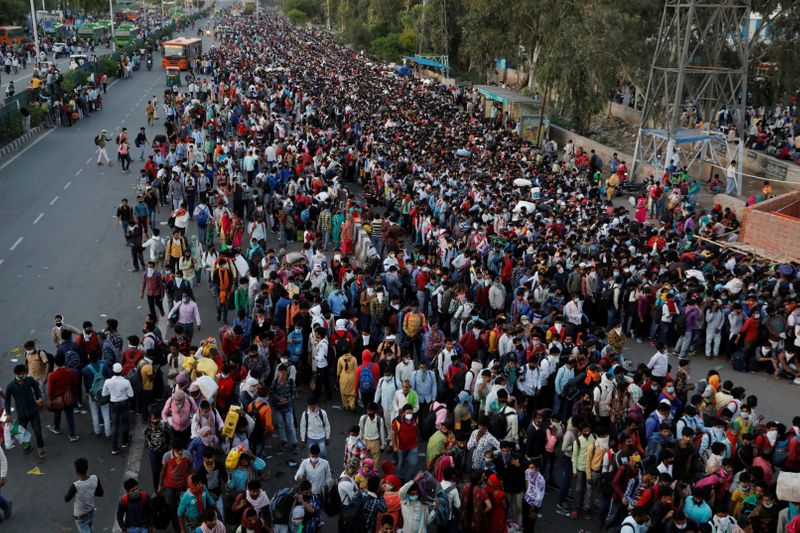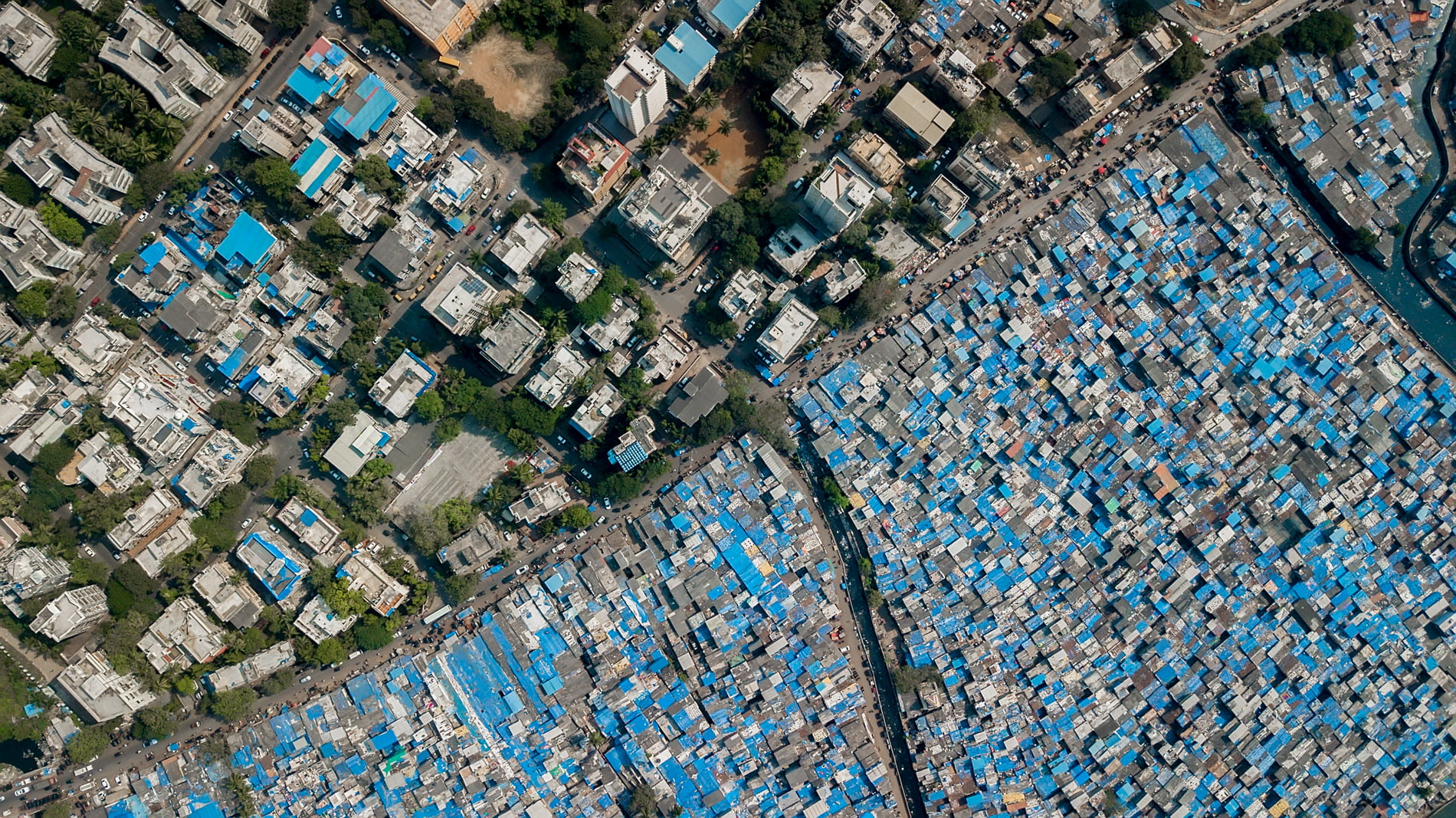Trigger warning: Mentions of violence, discrimination, abuse, and a general tone of dystopia and hopelessness around the current Covid-19 pandemic.
Amidst ongoing Covid-19 pandemic, the whole world has shaken up. Countries have enforced lock-downs and every government’s top priority right now is the keeping people alive. There is a sudden change in people’s lifestyles, psychologies and priorities. Keeping the global scenario aside for a while, can I say the same for India? Can I say that Covid-19 pandemic is the biggest threat Indians are facing? Some people might say yes, but deep down we know that’s not true.
We’ve always been dealing with things far worse than this, but many of us would like to ignore it or many just don’t have any exposure to the harsh realities because of our respective privileges. Most of the offices have been closed and people are at home, causing a surge of various trends and posts on social media, seeping peak ignorance and bias against something or someone. And this time, we have no excuse to get away with it because of the highly contagious nature of the virus. Our behavior in the next few months is going to decide our future and that of the next generations.
When the state governments started implementing Section 144 to prevent community transmission, I was texting my old and new friends for their whereabouts and safety check. One of them, who stays in Govandi (Mumbai), said, “I have almost all the symptoms of Covid-19. Actually almost every person around me has the symptoms since years. Not a big deal...” And it puzzled me, I pressed further.
Then he said, “Have you ever been to Govandi? Govandi’s Shivaji Nagar has Mumbai’s oldest and largest dumping ground. Asia’s largest dumping ground is in Deonar, which is just a kilometer away from here. Average life expectancy is not even 40 years. Most people live in 1 RK houses, each family with 4, 7, 8, 9 members; all houses are closely packed with no ventilation. Do you think people are scared of Corona virus? People breathe poison here everyday, they don’t care if the rich survive or die. They don’t care if they spread it, and that’s the problem. They need to be educated.”
I was stunned. Not that I was surprised; but it made me realize that this is a product of years of exploitation and discrimination. It’s what we’ve achieved in the last 72 years of freedom. And in the times like Covid-19 pandemic, it might make us pay a huge price as a nation.
The areas above mentioned are mostly dominated by Muslims and Dalits. Other similar ghettos have no different condition. Poverty in India is so severe that it is severe than death itself. Taking nothing of this into account, our beloved Prime Minister suddenly announced a nation-wide lock-down and we saw panic and hoarding similar to that during demonetization.
The areas above mentioned are mostly dominated by Muslims and Dalits. Other similar ghettos have no different condition. Poverty in India is so severe that it is severe than death itself. Taking nothing of this into account, our beloved Prime Minister suddenly announced a nation-wide lock-down and we saw panic and hoarding similar to that during demonetization. Lives of millions of people from unorganized sectors became uncertain.
On the second day of lock-down for Covid-19, after international media’s backlash and people’s demands, Central government announced relief package for the underprivileged. Does this solve the problem? We’ll have to wait for the answer. But this course of events is an indicator of the fact that we, in general, have become a nation of the privileged, and our policies too, are shaped the same way.
But there have already been many debates and discussions by experts on that, and I won’t get into the details. What worries me more, is the social implications of the current health crisis. One of them is the spread of misinformation and pseudo-science though social media. Many of these were propaganda and indicators of cultural superiority. It started with the posts like, “The world embraces Indian culture of Namaste and vegetarianism to prevent infection,” and later it all took an ugly turn.
First of all, there are numerous ways other than Namaste across the globe to greet people (salaam, wave, bow, Lakota avoidance practices, a head nod, Cup and clap like in Zambia, put hand on chest or go fancy like the vulcans in Star-Trek). Secondly, there has been no evidence that this infection is a result of non-vegetarianism.
Important question: Do we even know for sure what the Chinese eat? We are so engulfed in ourselves, that we never really explore other cultures and traditions. This ignorance has resulted in all the hate-mongering and prejudiced opinions on social-social-stigma/" target="_blank" rel="noreferrer noopener" aria-label="stigmatizing them and forcing them out (opens in a new tab)">stigmatizing them and forcing them out of their houses.
Did you watch the video (released 3 days before Janta Curfew) of Kartik Aryan ‘appealing’ (or bashing) all the people who were out of their houses? The number of people who appreciated his rant didn’t really surprise me, majority of the population is heavily ignorant of their privilege, and don’t have any regard for inclusivity. So they end up bashing and mocking everyone, disregarding other people’s daily struggles. Daily wage workers, migrant laborers are invisible to them. “Stay home, stay safe” is a big sadistic joke on the homeless, abandoned old and disabled people, sex-workers, socially excluded communities, people with mental illness, people having abusive families or partner or facing domestic violence.
What about the ~109 children who get abused everyday in India even without a pandemic around? Except for a few state governments like Maharashtra and Kerala, the Indian government has done a really bad job at planning and communicating with citizens regarding this crisis. When politicians themselves are playing it down, ICMR’s Covid-19 testing strategy was flawed despite having ample capacity and despite WHO’s clear instructions for testing, how can we expect the millions of uninformed, underprivileged, unorganized people to understand the gravity of the situation?
The Covid-19 pandemic is a very big issue in itself and needs to be solved as early as possible; but in India, that is not possible if we are not ready to finally acknowledge the flaws in our existing social system.
Featured Image Source: Gulf News





Article written with remarkable facts and questions…..!